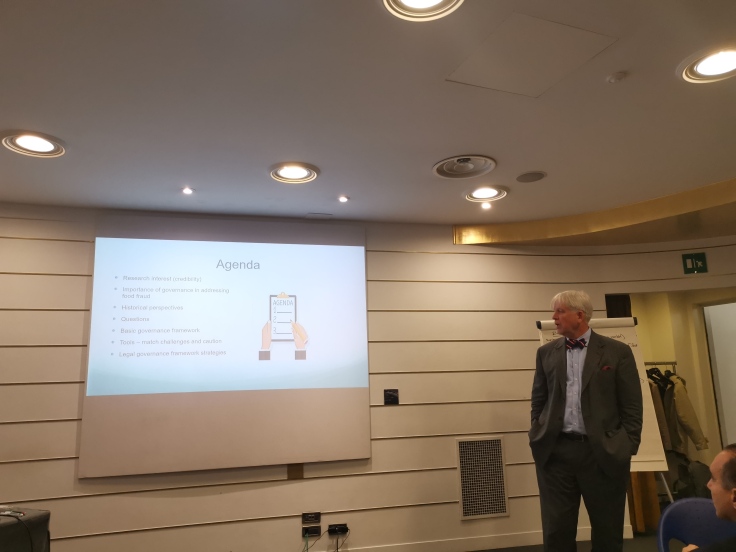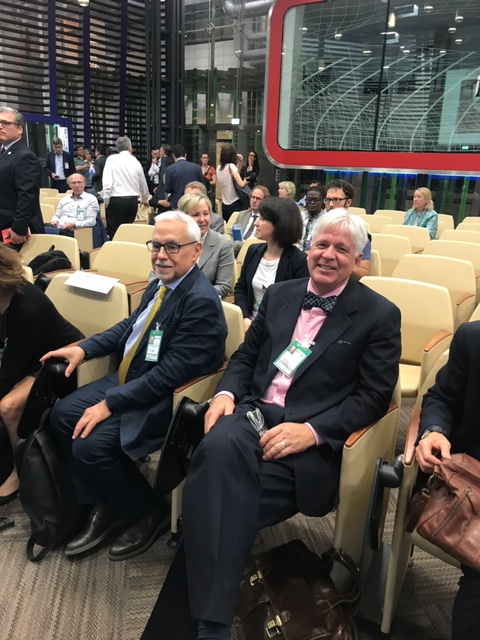The Resnick Center stands with the Black community against racial hate and injustice.

The Resnick Center stands with the Black community against racial hate and injustice.

by Diana R. H. Winters
One of the country’s largest pork processing facilities announced that it is closing indefinitely. The Smithfields Foods, Inc. plant in Sioux Falls, South Dakota will close after almost 300 of its workers tested positive for coronavirus. The plant employs 3700 workers and produces about four percent of the pork production in the United States.
Other major meat producers, including JBS USA and Tyson, have closed facilities after workers tested positive, and in some instances, died.
These closures illuminate significant worker safety problems at meat production plants. Manufacturers have been slow to provide protective equipment to low-wage workers standing close together to process meat and have pressured employees to remain working even if sick.
Moreover, these closures are one of many Covid-19 food supply chain issues resulting from the shutdown, which also include the inability of food producers to repackage food meant for institutional or restaurant use for retail use. The New York Times reported on the resulting massive food waste this past weekend.
All of the articles linked in this post can be found in the Resnick Center’s and the UCLA Law Library’s resource guide to Covid-19 and food law. Here in the blog we will occasionally highlight important trends and stories we see emerging. Please explore our guide, and forward relevant material for inclusion in the guide.
Today, the Resnick Center in conjunction with the UCLA School of Law Hugh and Hazel Darling Law Library launched a Covid-19 and Food Law Resource Guide. The guide will provide resources on the intersection of Covid-19 and food law and policy for scholars, researchers, and officials, which comports with the Resnick Center’s mission to provide cutting-edge legal research and scholarship in food law and policy.
This library guide will consist mainly at its start of substantive popular press articles, links to various open-access repositories of media reports, and helpful government sites. Over time, this library guide will be populated by legal scholarship and reflective, analytical publications relevant to legal scholarship that will be organized by subject matter and in some cases annotated.
If you come across interesting material at the intersection of Covid-19 and food law and policy, please submit it to be considered for this guide to the Resnick Center.
by Diana R. H. Winters
I will be attending CLE International’s Annual Food Law Conference on March 2-3, 202, in San Francisco. This is a terrific conference, which I highly recommend.
This is one of the few food law conferences where you can hear from both defense and plaintiff’s counsel, industry associations, and advocacy organizations. I learned so much last year. Michael T. Roberts, the Resnick Center‘s Executive Director, is a Co-Chair, and I am speaking on state law regulation on Tuesday, March 3. The featured speaker is Laura Eichhorn Kurpad, Esq., Associate Chief Counsel US Food and Drug Administration, to give us views from the FDA. You can find more info here: https://web.cvent.com/event/091ab345-25cd-4928-adf0-9212b7768bd5/summary?RefId=cle.com%20more%20info
Seriously, this conference is the cream of the crop! Hope to see you there.
I just returned from an exceptionally productive, four-day Food Fraud Workshop hosted by the UN’s Food and Agriculture Organization (FAO) in Rome. Our participation in the workshop was the first project for the Resnick Center following its MOU with the FAO earlier this year.
In connection with the workshop, I have had the privilege of working with the FAO Legal Department in the drafting of a background paper on the regulation of food fraud. Given the Center’s publication of two white papers on food fraud, this experience is particularly rewarding.
The workshop had a number of interesting law and science presentations. I delivered a keynote presentation on the regulatory framework that governs food fraud both internationally and domestically. I was also happy to be joined by colleagues from various countries, including Dr. Sun Juanjuan from Renmin University School of Law in China, with whom the center collaborates with closely. Overall, the proceedings reinforced for me the important role of law and governance strategies in addressing food fraud. There is a lot of work to be done, but I look forward to being involved in this global effort.

UPDATE (June 26, 2019): Please see here for the FAO’s press release regarding this partnership: http://www.fao.org/partnerships/academia/news/news-article/en/c/1198206/
Reprinted from UCLA Law News and Events (https://law.ucla.edu/news-and-events/in-the-news/2019/06/resnick-center-partners-with-un-on-global-food-initiatives/)
The Resnick Center for Food Law and Policy at UCLA School of Law has entered into a partnership with the United Nations Food and Agriculture Organization (FAO) on a series of research and advisory initiatives to confront global food security, nutrition, safety and quality.
The parties signed a memorandum of understanding at an FAO event in Rome on June 10, where leaders in global food policy gathered for a series of talks on the future of food. Michael Roberts, executive director of the Resnick Center, attended and served as a featured participant in a roundtable discussion on academic perspectives of global nutrition policy.
The agreement establishes a working relationship between the Resnick Center and the UN, including an initial project involving food fraud that builds on recent research by UCLA Law scholars. Hilal Elver S.J.D. ’09, who serves as the Resnick Center’s global distinguished fellow and the UN’s Special Rapporteur on the Right to Food, was instrumental in building the partnership between the center and the FAO.
“FAO is glad to partner with UCLA, one of the most prestigious academic institutions around the world,” FAO director-general José Graziano da Silva said in a statement. “Promoting healthy food systems has become a top priority [in] sustainable development, and this cannot be done with [inadequate] regulation. … UCLA law school expertise, in particular on food law, will surely contribute to address this key challenge.”
The collaboration continues the close relationship between the Resnick Center and the FAO. Graziano da Silva visited UCLA Law in February 2019, where he emphasized that simply providing food to hungry people around the world is not enough. Rather, he said, serving healthy food should be a paramount concern.
“We need to reposition our food systems from feeding people to nourishing people,” Graziano da Silva told an audience of UCLA Law students and professionals in the field. “Obesity and overweight are growing faster than hunger. It is an epidemic. The right to healthy food should be a key dimension for zero hunger and for the right to food itself.”

The Resnick Center is collaborating with CLE International to present the fourth annual Food Law Conference at the UCLA Faculty Center on June 6 and 7, 2019. This conference brings together an amazing group of practitioners, regulators, academics, and stakeholders to present on numerous important food law topics, including standards and food fraud, preemption, and class actions. You can find the full brochure with a schedule of events here, and you can register here.
Please join us!
The Resnick Center is collaborating with CLE International to present the fourth annual Food Law Conference at the UCLA Faculty Center on June 6 and 7, 2019. This conference brings together an amazing group of practitioners, regulators, academics, and stakeholders to present on numerous important food law topics, including standards and food fraud, preemption, and class actions. You can find the full brochure with a schedule of events here, and you can register here.
Please join us!
by Diana R. H. Winters
UCLA Law 3L Amit Liran has published “Holding the Animal Agriculture Industry Accountable for Climate Change: Merits of a Public Nuisance Claim Under California and Federal Law,” in the Villanova Environmental Law Journal (Vol. 30, Issue 1 (2019)). This paper develops arguments for a public nuisance claim under both California state and federal common law against companies within the animal agriculture industry for their role in climate change and assesses the validity of such arguments.
About coming to this topic, Liran writes:
“I was first inspired to write Holding the Animal Agriculture Industry Accountable for Climate Change: Merits of a Public Nuisance Claim Under California and Federal Law while enrolled in the “Introduction to Food Law and Policy” course taught by Professor Michael T. Roberts, the founding Executive Director of the Resnick Center for Food Law and Policy at UCLA School of Law. Class discussions regarding civil food law claims based on misrepresentations of nutritional facts made me consider potential claims against huge forces in the food industry that—motivated by profits—have continuously pushed long-standing misconceptions regarding the nutritional value of modern food staples. This strategy boosted consumption of their products and thereby materially contributed to today’s most pressing exigency: climate change. Based on parallel claims that have been brought against fossil fuel companies, I developed and wrote about potential litigation strategies against the most culpable of such forces.”
Enjoy!
On February 23, 2019, the Resnick Center for Food Law and the UCLA Animal Law and Policy Program hosted a one-day conference at UCLA Law titled, “Public Values in Conflict with Animal Agribusiness Practices.” The conference featured three panels about subjects relevant to closing the gap between public values and animal agribusiness practices. These three panels addressed the role and utility of undercover investigations, production method issues and consumer perceptions of labels, and private agreements with corporations as a way to improve business practices that affect workers and animals and to reduce animal products.
This conference was part of a joint Initiative on Animals in Our Food System between the Resnick Center and the UCLA Animal Law and Policy Program and funded by a generous gift from the Animal Welfare Trust. We previously co-hosted with the Animal and Law and Policy Program a Roundtable discussion on the legal and business considerations in how investments are made in plant-based enterprises. We have also incorporated law and policy issues related to animals in the food system in our classes and events. The Center is grateful for its association with the UCLA Animal Law and Policy Program and looks forward to future joint activities.
You must be logged in to post a comment.